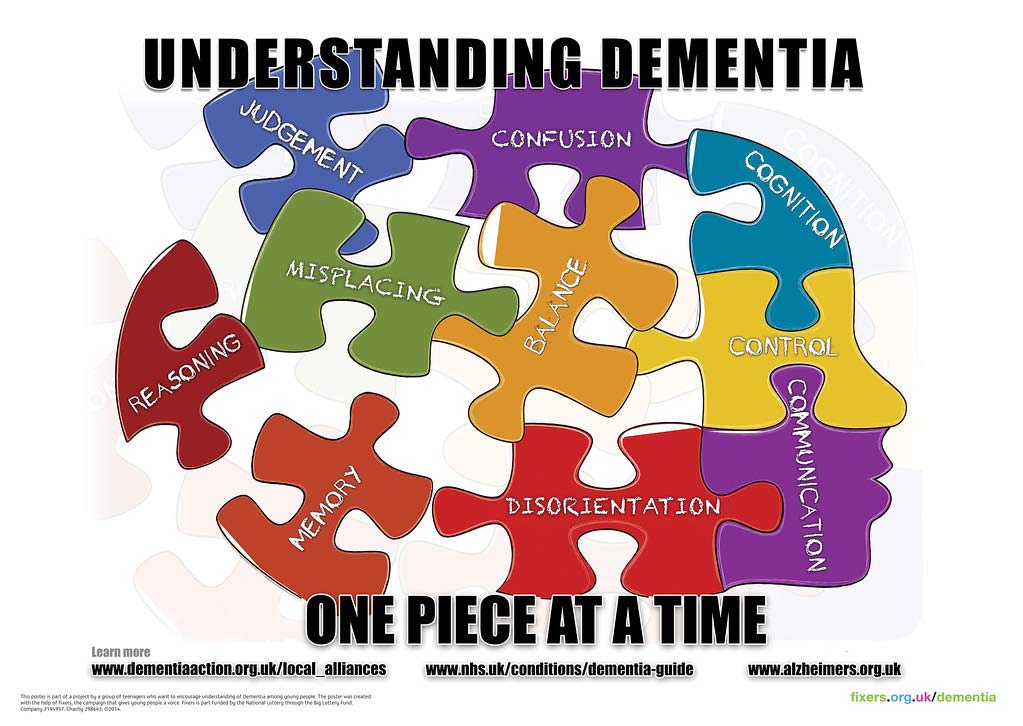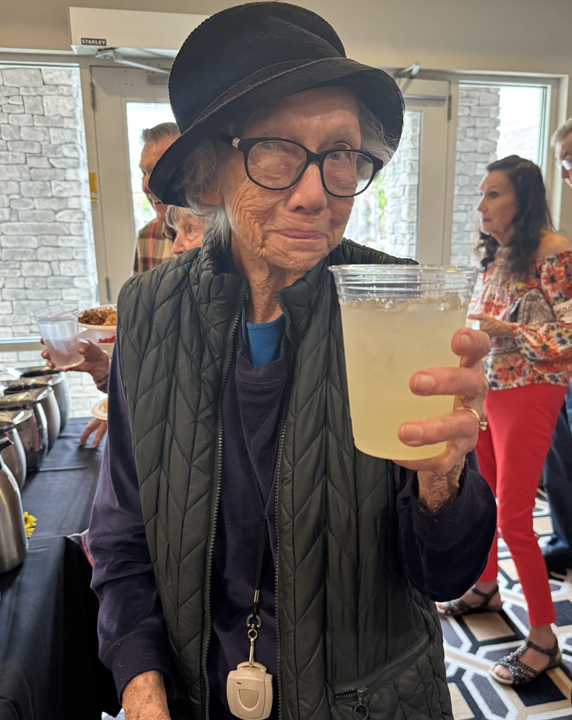Senior Living News, September 2025
Legacy Reserve at Fritz Farm Newsletter

Around the world with Atlas - September 2025 - Scotland
Resident´s Birthdays
Patricia Cooper – 2nd
Marilyn Cain – 3rd
David Blondell – 4th
Charles Mattingly- 6th
Gloria Staples- 7th
Sheila Wicker- 7th
Dianne Frazer – 10th
Valerie Crawford- 13th
Claire Bevan- 17th
Rebecca Banks- 21st
Doris Hager- 23rd
Kathy List- 23rd
Bobbi Terry- 24th
Nancy Swain- 25th
Vanta Coda- 27th
Peggy Hyams- 27th
Daisy Jackson- 29th
Sandy Elliott- 30th
Celebrating September
Labor Day Cookout- September 1st
National Blueberry Popsicle Day- September 2nd
National Beer Lovers Day- September 7th
Monthly Birthday Celebrations- September 30th
Events Spotlight
Taste of Scotland Event on September 9th; having small plates of different scotland themed foods and scotch tasting in our sports bar
Associate of the Month
Emma Spurlock
Congratulations to Emma, our Employee of the Month! Emma is a consistent and reliable presence on our team, always bringing a calm and steady energy to everything she does. Her helpful nature and genuine care for both residents and coworkers make her an invaluable part of our community. Whether she’s going the extra mile to assist a colleague or offering a kind word to brighten someone’s day, Emma’s dedication and compassion truly set her apart. We’re grateful to have her on our team and proud to recognize her this month!
Scottish Heart
Alexa, play "R U Still In 2 It" by "Mogwai"
On their 1997 debut Young Team, Mogwai’s “R U Still in 2 It” trades crushing guitars for quiet despair. With Aidan Moffat’s spoken vocals over sparse chords, the song captures the ache of a fading relationship. It’s one of the album’s most intimate moments, showing Mogwai’s power in restraint as much as in noise.
Retirement Planning Advice
Retirement planning is essential at every stage of life, but for seniors—typically individuals aged 60 and above—it takes on new dimensions of urgency and practicality. At this stage, the focus shifts from wealth accumulation to income preservation, risk management, and ensuring financial stability throughout the retirement years.
One of the first steps in retirement planning for seniors is to evaluate current and projected expenses. This includes housing, healthcare, daily living costs, insurance, travel, and potential long-term care needs. Budgeting accurately helps identify whether existing income sources—such as Social Security, pensions, retirement accounts (like IRAs or 401(k)s), annuities, and investments—will be sufficient to cover these costs.
Healthcare is a major concern for seniors, as medical expenses tend to rise with age. It’s important to review Medicare coverage options and consider supplemental insurance or long-term care insurance to protect against unexpected costs. Planning for medical emergencies, home care, or nursing facilities can prevent financial strain later.
Investment strategy should also shift to prioritize preservation of capital and steady income. Seniors often benefit from a conservative portfolio that balances low-risk investments like bonds, dividend-paying stocks, and annuities. Diversification remains key to minimizing risk while maintaining potential growth.
Estate planning is another critical component. Seniors should ensure their wills, power of attorney documents, healthcare proxies, and trusts are up-to-date. This not only secures their legacy but also reduces stress and confusion for loved ones during difficult times.
Finally, it’s wise to consider lifestyle adjustments that align with retirement goals and financial capabilities. Downsizing a home, relocating to a more affordable area, or accessing home equity through a reverse mortgage are potential options.
In summary, retirement planning for seniors is about creating a secure, sustainable, and fulfilling lifestyle. With thoughtful financial management and the right support, seniors can enjoy peace of mind and independence throughout their golden years.
Welcome to Scotland
Around the World with Atlas
Scotland: The Land Beyond the Wall
When the Roman Empire pushed north into Britannia, it met fierce tribes the legions could never conquer. To mark the limit of their reach, the Romans built Hadrian’s Wall, and further north, the Antonine Wall — yet beyond lay the untamed lands we now call Scotland.
By the 8th century, Scotland began to take shape as a kingdom, often in conflict with its southern neighbor, England. Centuries of wars, heroes like William Wallace, and an enduring sense of independence defined its story. In 1707, Scotland formally united with England, creating Great Britain, which later grew into the United Kingdom alongside Ireland.
Still today, Scotland remains proudly distinct — with its Gaelic roots, tartans, castles, and legendary landscapes reminding the world of a culture that was never fully subdued.

Dementia Awareness
Dementia is a broad term used to describe a decline in cognitive function that interferes with daily life. It is not a specific disease but rather a group of symptoms affecting memory, thinking, communication, and behavior. Alzheimer’s disease is the most common cause of dementia, but there are other types as well, including vascular dementia, Lewy body dementia, and frontotemporal dementia. Raising awareness about dementia is critical for early diagnosis, effective care, and reducing stigma.
One of the biggest challenges with dementia is that early symptoms are often mistaken for normal aging. These may include forgetfulness, confusion, difficulty with familiar tasks, or personality changes. Awareness helps individuals and families recognize these signs sooner, leading to earlier medical evaluation and better management of the condition. While there is currently no cure for most types of dementia, early intervention can slow progression and improve quality of life.
Educating the public also helps to combat the stigma and misunderstanding that often surround dementia. People living with dementia are still individuals with emotions, preferences, and abilities. They deserve respect, dignity, and support. Increased awareness fosters a more compassionate and inclusive society where those affected feel less isolated and more empowered.
Support for caregivers is another crucial aspect of dementia awareness. Caring for someone with dementia can be physically, emotionally, and financially demanding. Resources, respite care, and caregiver education can make a significant difference in both caregiver well-being and patient outcomes.
Finally, raising awareness encourages more research into treatments, prevention, and possibly a cure. With an aging global population, dementia is a growing public health concern. Communities, healthcare providers, and policymakers all have a role in supporting awareness efforts.
In conclusion, dementia awareness is essential not only for early diagnosis and treatment but also for improving the lives of those affected. Through education, empathy, and advocacy, we can build a society that better supports individuals living with dementia and their families.
The Importance of Health Screenings and Checkups for Seniors
As people age, the risk of developing chronic illnesses and age-related conditions increases significantly. For seniors, regular health screenings and medical checkups are vital components of maintaining health, detecting diseases early, and improving overall quality of life. These routine evaluations serve not only as preventive measures but also as tools for managing existing health concerns effectively.
One of the primary benefits of health screenings is early detection. Conditions such as high blood pressure, diabetes, high cholesterol, certain cancers, osteoporosis, and vision or hearing loss often develop slowly and without obvious symptoms. Regular screenings can identify these issues before they become serious, allowing for timely intervention. For example, catching high blood pressure early can help prevent stroke, heart disease, and kidney problems.
Seniors also face an increased risk of cognitive decline, including dementia and Alzheimer’s disease. Routine cognitive assessments during checkups can lead to early diagnosis, which enables better planning and access to appropriate support and treatment options.
Preventive screenings like colonoscopies, mammograms, bone density tests, and prostate exams play a crucial role in reducing mortality rates. Immunizations, including flu shots, shingles vaccines, and COVID-19 boosters, are also critical for preventing serious illness in older adults, whose immune systems may be weaker.
In addition to physical health, regular checkups provide an opportunity to discuss mental health, medications, nutrition, physical activity, and lifestyle changes. Doctors can help seniors manage chronic conditions more effectively, avoid harmful drug interactions, and tailor health advice to their specific needs.
Importantly, these checkups also help build a strong doctor-patient relationship, fostering open communication and trust. Seniors who stay engaged in their healthcare are more likely to adhere to treatment plans and make informed decisions.
In summary, regular health screenings and checkups are essential for seniors to live longer, healthier, and more independent lives. Preventive care is not just about adding years to life—but adding life to years.
More Articles
Seasonal Blues or Something More? How to Spot Emotional Changes in Aging Loved Ones
In Something Wicked This Way Comes, Ray Bradbury captured the quiet strangeness that arrives when autumn fades. The air cools, the light changes, and everything …
Practical Financial Tips Every Retiree Should Know
Share our good news:
Recipes of the Month
Scottish Lentil Soup
Healthy & Hearty
Warm, comforting, and full of nutrients, Scottish Lentil Soup is a traditional dish with a healthy twist. Packed with fiber, protein, and vegetables, it’s perfect for a wholesome lunch or light dinner.

Ingredients:
1 tablespoon olive oil
1 onion, chopped
2 carrots, diced
2 celery stalks, diced
1 cup red lentils (rinsed)
1 garlic clove, minced
1 teaspoon ground cumin (optional)
4 cups low-sodium vegetable or chicken broth
Salt and pepper to taste
Fresh parsley for garnish (optional)
Instructions:
Heat the olive oil in a large pot over medium heat. Add onion, carrots, and celery. Cook for about 5 minutes, until softened.
Stir in garlic and cumin, and cook for 1 minute more.
Add red lentils and broth. Bring to a boil, then reduce heat and simmer for 25–30 minutes, or until lentils are soft.
Season with salt and pepper to taste.
Blend slightly with an immersion blender if desired, or serve chunky.
Garnish with fresh parsley.
Why We Love It:
This soup is rich in plant-based protein, naturally low in fat, and full of flavor. Lentils are a Scottish pantry staple and offer heart-healthy benefits while being gentle on the stomach and easy to prepare.
Resident of the Month
Margaret Bashkin
Meet Margaret Bashkin, our Resident of the Month! Margaret is known throughout the community for her warm heart and generous spirit, always ready to lend a helping hand to neighbors and staff alike. Whether she’s offering support to a friend or volunteering her time, her kindness never goes unnoticed. Margaret also brings a spark of fun to every Bridge game she joins with her love for friendly competition. Her positivity and involvement make her a cherished part of our community, and we’re proud to celebrate her this month!
Tips for Keeping Minds Active
Keeping the mind active is essential for maintaining cognitive function, especially as we age. An active mind supports better memory, concentration, mental agility, and overall brain health. Whether you’re a senior looking to stay sharp or simply interested in lifelong mental fitness, there are many practical and enjoyable ways to keep your brain engaged.
One effective strategy is lifelong learning. Taking classes—online or in-person—on new subjects such as history, technology, or art stimulates mental growth. Reading books, newspapers, or magazines regularly also challenges the brain and improves vocabulary and comprehension.
Puzzles and games are excellent brain boosters. Activities like crosswords, Sudoku, chess, jigsaw puzzles, or strategy board games promote problem-solving skills and memory retention. Even playing cards or learning new games can offer cognitive benefits.
Staying socially active is equally important. Conversations, group activities, and volunteering help prevent isolation and provide mental stimulation. Social interactions require thinking, memory, and emotional processing.
Creative pursuits like painting, writing, gardening, or playing a musical instrument also encourage the brain to form new neural connections. Even simple changes to routines, like trying a new route home or cooking a new recipe, challenge the brain in healthy ways.
Finally, regular physical exercise supports brain health by increasing blood flow to the brain and reducing stress. Combined with proper sleep, hydration, and nutrition, these habits form a strong foundation for keeping the mind sharp and engaged.
Incorporating these activities into daily life not only strengthens mental function but also adds enjoyment, purpose, and connection—key ingredients for a healthy and fulfilling life.
Collaborators

Mallory McCulloch





















